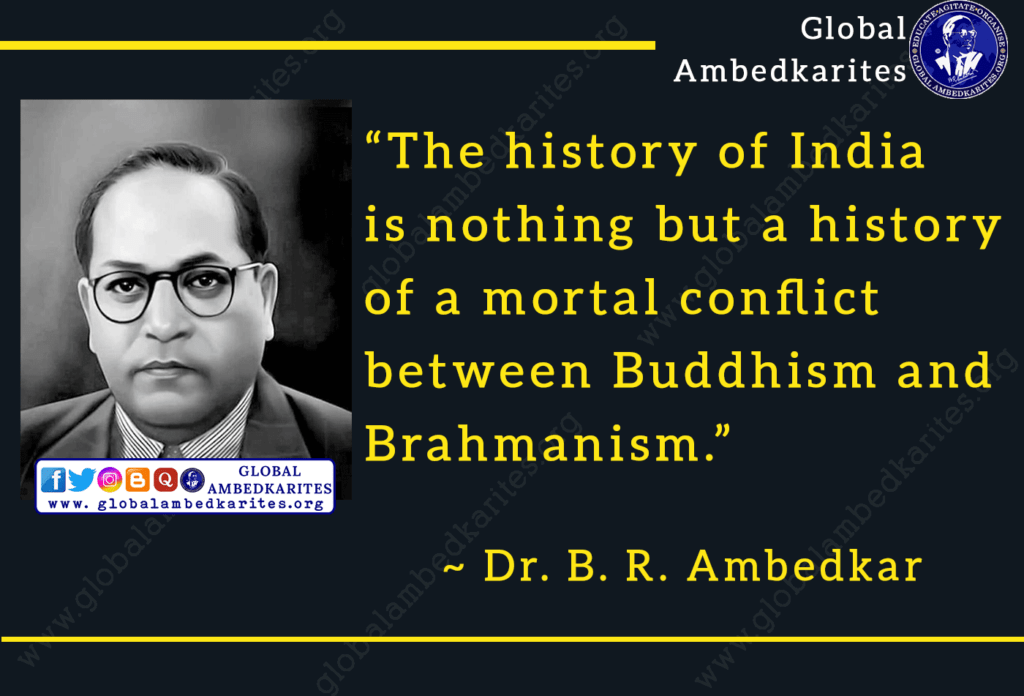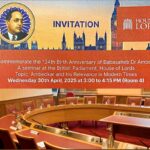
In India, the followers of so called Hinduism are gullible masses, who are following Brahmanism in sugar coated Hinduism. For generations Brahmans have concocted and spread crooked stories to be-fool the masses and keep the Shudras and Ati-Shudras, the achhut (Untouchables) following Brahmanical culture without even knowing what they are following and doing. This deception was easy as the Shudras and Acchuts were deprived of education.
These Brahmanical crooked stories have made such a psychological impact that people were bound to follow these rituals without knowing the reality behind these fraudulent mythical stories.
The Neo-Hindus say, “Light lamps and Laxmi (money) will flow into your house.” How can it possibly be true that lighting candles will open floodgates of wealth into anyone’s homes? All it would do is pollute the environment and nothing else. If lighting candles could make people rich, then people living in the remotest areas who haven’t had access to electricity for years would have been millionaires and billionaire by now, as they use candles for lighting purpose throughout the whole year, year in year out.
In his book “Discovery of India” (page 204-5) Jawaharlal Nehru writes that festivals like Holi, Diwali and Dussehra are imitation of Greek festivals. On page 235, Nehru explains that the Brahmins are not a caste but an organisation who would offer their daughters for guests. In page 37, he states: “Hinduism as a faith is vague, amorphous, many sided, all things to all men. It is hardly possible to define it, or indeed to say definitely whether it is a religion or not, in the usual sense of the word. In its present form, and even in the past, it embraces many beliefs and practices, from the highest to the lowest, often opposed to or contradicting each other.”
Here are a few facts and realities of the Diwali festival:
On this day, Great Gana king Bali, a tribal was murdered by the Brahmin Waman. The tribals who celebrate this day need to know that this is not a day of Joy but a day to congregate and reflect on the struggles of their ancestors. Unite in the name of the virtuous King Bali remembering his contribution and fight against oppression.
For the Buddhists too, this day is NOT A DAY OF CELEBRATION but a day of thinking, reflection, learning, teaching and meditating Some Buddhists observe this day as Deepdāna Diwas (symbolic representation: a lit candle/s or dipa)..
Dipa= light (wisdom/knowledge) AND
Dana= giving without expecting a reward
So Deepa-dana is “freely imparting/sharing/giving knowledge/wisdom without expecting anything in return. It’s NOT an utsav, NOT a festival to be celebrated.
This was a day in the Buddhist calender when Ven Maha Moggallana was killed. Celebrate Diwali in any form and you’ll be celebrating the murder of a great bhikkhu who served the Buddha, Ven Bhante Moggallana. Buddhists pay tribute to the great Bhikkhu by contemplating on a Sutta dedicated in his name, the MOGGALLANA SUTTA
It is my understanding that Diwali is chosen to be celebrated on this day in the month of Karthik (oct/nov) to divert attention from the above facts. The Brahmanic festival of Diwali according to their holy texts (Ramcharitra Manus pg8) is supposed to fall in the month of vaisak.
Deepdàna Day on Kartik Amawassya is also said to be a day when the Buddha first visited his pre-enlightenment family home., which is no big reason to celebrate. This happened in the month of Phalgun’ around March, not Karthik. This is the main error even in the video attached to this post, which again diverts attention from the murder of Ven Moggallana.
Furthermore, there is no evidence of any Buddhist scholar, including Baba Saheb Dr Ambedkar celebrating this day as day of joy.
After the genocide of thousands of Buddhists in the rule of Pushyamitra Shung, this day was celebrated as “Eekadashi“.
Around 200 BC. Pushyamitra killed Buddhists monks, destroyed Buddha Vihars and burnt Buddhist literature. During his times many Buddhist places were converted in Brahmanic temples of worship and worse, they made future generations of Buddhists celebrate the murders and rapes of their ancestors in the name of festivals like Diwali and Dusshera.
It is also believed that when the invaders/migrants came to India from Egypt and other lands through Iran and China, they brought their culture with themselves and wrote the so called “Vedas” imitating Egyptian and Iranian books with changes to suit their agenda.
“Ram” on the name of which the festival of Diwali is celebrated is a fictitious character. Even the Supreme Court of India has denied the existence of so called “Ram”. So there is no logic behind celebrating his name.
Many scholars agree that “Pushyamitra Shung” himself was the mythical “Ram Chandra” who imposed inhuman laws on the Shudras and Ati-Shudras and stopped their progress. It is also believed that Ramayana was first written during his time to befool the non Brahmans.
So called “Ram” (Pushyamitra Shung?) killed Shudra rishi – Shambuk, who was practicing meditation. He was killed merely because he was a Shudra and Shudras weren’t allowed to meditate. Buddhists who survived the wrath of Pushyamitra Shung, began to be treated as the Acchuts, the untouchables.
Neo-Hindus worship Laxmi, the goddess of Money but a recent survey showed that 70% of Indians still live on a daily income of Rs 20. What to eat and what to wear? In developed countries there are no gods and goddess such as Saraswati or Laxmi but still people in these lands are more educated and wealthier than most Indians. Neo-Hindus have embossed mental slavery which has shut all doors to rational thinking. During Diwali, disregarding deadly pollution, countless millions are wasted on fireworks. Should you consider crackers before blasting them? There is a stagerring 15% per year increase in Asthma patients due to air pollution. Selfish and Irrational minds do nothing during Diwali but add to human suffering increasing Asthma patients.
All Brahmanic festivals make Indian heritage rich with poor people.. rather slaves enjoying slavery.
The term “Diwali” is not mentioned in the Ramayana of Valmiki but it is found in Jain books with exact dates. It seems the followers of Pushyamitra Shung took the term from
Jain scriptures. This day was originally celebrated as the day of nirvana of Lord Mahavira. Today, these facts are fast vanishing and gullible people are celebrating it for mythical reasons believing them to be true.
All fallacious stories, gateway to establish Brahmanical culture and allied fests at first sight look harmless but in reality these mythical stories are deadly weapons of destruction of the Avarna culture in India and imposes Brahmanical culture.




